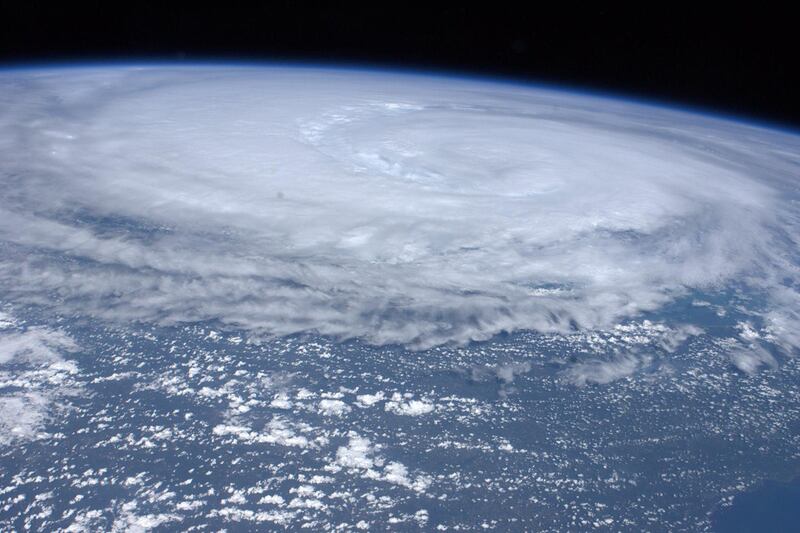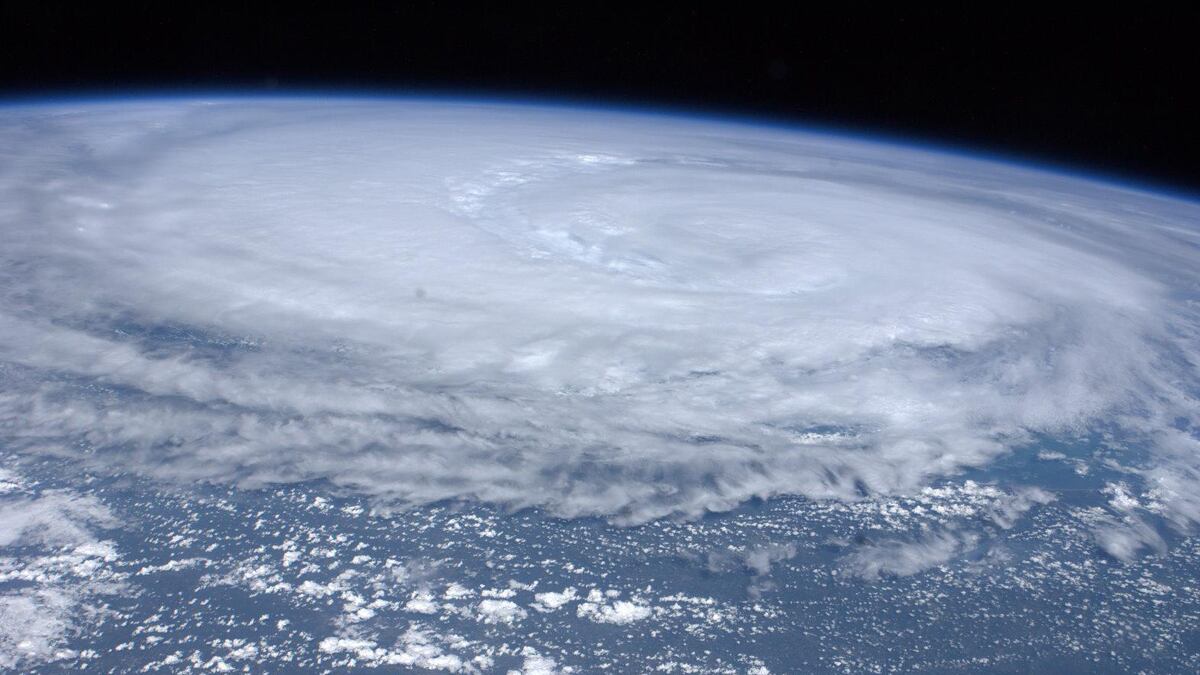The biggest damage is supposed to be connected to the “storm surge.” What does that mean?
A storm surge is the rise of water that occurs as the result of a storm. It is not the same as the storm tide, which is the actual water level as a result of the storm. The height of a storm surge is determined by calculating the difference between the total height of the storm tide and the normal high tide. For example, if the normal tide in an area is two feet and the storm tide is 17 feet, then there is a total storm surge of 15 feet.
All the forecasters keep calling it a Category 1 storm. What does that mean?
The National Hurricane Center ranks hurricanes using the Saffir-Simpson scale, which is a scale of a hurricane’s damage potential. It was named after engineer Herbert Saffir, who came up with the first version of the scale in 1971, and Robert Simpson, who directed the National Hurricane Center at the time. The scale itself divides hurricanes into five categories based on wind speed. A Category 1 hurricane has sustained winds of 74-95 mph. A Category 5 hurricane, the strongest, will have sustained winds of greater than 155 mph, and the National Hurricane Center warns that in a Category 5, “catastrophic damage will occur.” Just to give some perspective, Hurricane Katrina, one of the deadliest hurricanes of the 20th century and the U.S.’s costliest natural disaster, was a Category 4 storm.
Why did NYC shut down its subways?
There are several reasons that New York City shut down the subways. A storm with sustained winds of over 39 mph, like Irene, crosses the threshold of safety for bridges and above ground subway tracks. Although officials say there is very little chance that any trains would be derailed because of the wind, they warned that flying debris could be blown into the path of trains or injure people waiting on platforms. The primary reason for the closure is so the city can protect its 200 subway trains. The trains are usually stored in low-lying subway yards and some of those may flood during the hurricane. The trains will temporarily be stored in the underground tunnels, which will completely block regular service on those routes. It is also possible that the tunnels themselves may flood, which could cause train signal systems to short circuit.

There have been photos recently of gas lines. Is Hurricane Irene going to cause a gas shortage?
Yes and no. Some gas stations along the East Coast began to run out of gas over the weekend, as drivers filled their tanks while evacuating. But more gasoline will be delivered to those stations when it is safe. Additionally, some oil refineries may be shut down temporarily as the hurricane approaches, but the actual facilities are strong and unlikely to be damaged. Oil in the refineries would be drained and stored, and would not be lost, just delayed. While this could cause a brief delay in delivery of gasoline, officials do not expect any long-term gas shortages.
The mayors called states of emergencies, then the governors called states of emergencies and then so did the president! What does this mean?
Declaring a state of emergency frees up emergency funds, and allows for the speedy distribution of resources while avoiding the usual delays of a government bureaucracy.
The airports shut down, but what happens to the airplanes on the tarmac? Can they fly away and hit houses?
There is little danger to planes on the tarmac. The Port Authority of New York shut down the city’s airports because arriving passengers would not be able to use the city’s MTA system. A spokesman said, “People would get in and not be able to get anywhere. We don’t want people stranded at the airports.” Additionally, some airlines simply moved their planes out of the hurricane’s path. JetBlue moved 50 planes out of the New York and Boston areas to speed along the service restoration.
FEMA and the Department of Homeland Security are all over the news. What do they do?
The Federal Emergency Management Agency became part of Homeland Security in 2003. FEMA is involved with most disasters and its role “spans the life cycle of disasters.” The agency helps the country prepare for emergencies, respond to them, and lessen their impact when they occur. The agency deals with everything from hurricanes to fires to terrorism.
Why are people worried cellphone networks will go down? Isn’t that a better option than a landline if the power goes out?
There is a chance that the cell towers may loser power, in which case backup batteries would provide extra power. But batteries may last as little as eight hours, so they will eventually fail if the recovery lasts several days. Finally, the massive amounts of people who will be calling each other during the hurricane may cause the wireless networks to overload. Cellphone companies recommend communicating via text message, because that takes up less network capacity than calling. But landlines aren’t necessarily a better option: Landlines carry calls between the towers, and they could be damaged during the hurricane.
Where do hurricane names come from?
The World Meteorological Organization maintains six lists of possible hurricane names that are rotated yearly. The lists originally used only women’s names, but in 1979, the lists included men’s names and male and female names now alternate each year. Names on the lists are only changed if a particular hurricane was so catastrophic that it would be insensitive to use the name again. Some examples of retired names are Katrina, Andrew, Floyd, and Allison, the only time a tropical storm caused so much damage it took a storm name out of play.
Why is taping your windows considered a bad idea?
It turns out that taping your windows to keep them from breaking is a myth. Tape only keeps broken glass from scattering in all directions if a window breaks. FEMA recommends using permanent storm shutters or boarding up windows with plywood.
All the windows are being boarded up. Is this to prevent the roof from falling off?
It is possible for hurricane force winds to enter a house through windows and lift the roof off of the house, blow out walls, and otherwise destroy the property. But boarding up windows also prevents windows from breaking.
Why should you keep bottles of water in your freezer during the storm?
Keep bottles of water in the freezer, so that if the power goes out they can be used to cool the refrigerator. Then as the water inside the bottles melts again, they can be used as cool drinking water.
Why are we being warned against using candles during a power outage? Isn’t this what the pioneers did before power?
In the event of a power outage, it is safest to use flashlights, as illuminating a house with candles poses a severe fire hazard.





